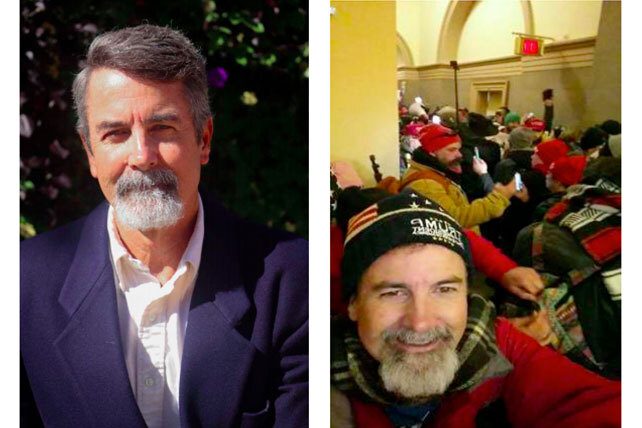It felt like there a lump was in my lung today on my run. It was most assuredly the normal out-of-breath-ness that comes when you’re not exercising the way you should, you feel half-sick, and you start running again. And that’s exactly what I was doing. Getting back into the habit of my summer runs.
However, with the scares of an invisible and imminent virus floating around, mixed with my doctor telling me I had cancer a few months ago mixed with the fact that I am still sick after 19 months, tossed in with a local boy who took his own life last week. It felt like a lot more than a mere burning in my lungs.
Trying to Run From God
Most 28-year-olds believe they’re not even close to the halfway point of their lives. I, however, need to continually remind myself that I probably have over half of my own life left.
Jesus says to Lazarus, “this sickness will not end in death,” and what does Lazarus go and do? Die.
Will my sickness end in death? I can’t help but wonder if the answer is always going to be no, even after I die.
Because no one born of the Spirit ever really dies, do they?
I don’t know what it all means, and I’m not yet convinced it’s not all ancient Sanskrit gibberish, but I really want to believe that the man Jesus Christ was as wonderful as I see Him being: A man who critiques toxic power structures, less of the political world, and more the religious one.
A man who gives the finger to the holier-than-thou judges and breaks bread with the sinners. A man who kills death. What do you do with a man like that?
Reading through the gospels slowly has been a huge boon in disguise to me in this season. A season filled with doubt — and don’t go ooing and ahhing, because doubt, when truly experienced, feels like the thin shelf on which you perched (we will name it ‘paradigm’ or ‘metaphysic’) is being shattered and you have no idea what form of existence lies beneath this shelf.
Is it a river running wild as Semuc Champey in Guatemala, waiting to suck you into an underground vortex? Or is it something more sinister — perhaps the one thing more chaotic than water: fire?
Or is it neither, as we will neither drown nor burn, because God doesn’t want those things for us?
Because this sickness will not end in death.
This death will not end in death.
My lungs burned as the silky, sexy sunlight slid downward, shooting off pink and blue confetti cannons into the Colorado sky, but all I could think about was what to do with my remaining minutes of life on this side of the casket.
Moreover, how would I ensure that the skirt-wearing Egyptian guard dog gods would grant me safe passage to the pleasant afterlife? How do we know the Hebrews got it right, not the Egyptians? Or maybe the Hittites were the ones with the correct answer to the Great Mystery, but King David wiped them out and here we are, trusting a crazed Carpenter from Galilee who says His forefather did the right thing.
See what I’m saying?
History and scriptures are written by winners and passed down by a lot of scared people who are hoping that the straw they grasped was the right one.
The thing I can’t escape, however, is Jesus. The man. The human.
Hear me out — it’s not just Christianese mumbo-jumbo, I promise. Joseph Smith and Muhammad invented the same religion (if you don’t believe me, watch this), and it’s garbage. Their messages; the ‘truths’ they preached were utter manmade nonsense. Actual feces. On the level of Harry Potter, but less entertaining.
Joseph and Mo were men. They died and stayed that way.
The Buddha and Dalai Lama and Ghandi were legit — more legit than many American pastors today who wear thousand dollar clothes and preach other garbage messages (I’ve heard more accurate truths creep out of my bum) — but they were not gods. They were also men who died.
Also thrown into the mix is the cultural environment in which these manmade religions took root: They reflect the culture and ethics of the people groups they represent. Mormonism is undeniably a white, American religion, no question about it, just as Islam reflects the Medina of Muhammad’s youth and doesn’t easily bend its message for those outside the Middle Eastern (or Arabic-speaking) world.
Jesus, however, deconstructs the human, lawful elements of His own religion of Judaism and frees people from the burden of lifting themselves into heaven by following the Code.
Historically, there is no point in time to which His coming could have been better-suited. The gospel took advantage of the Roman road system which spanned Africa, Europe AND Asia, and used the common, global languages — Latin and Greek — to communicate it. The timing in the belt of history is just too perfect.
Ask yourself — as I am while writing this —
“If I were God and I wanted to interact with humans, how would I do it? When would I do it?” Purely strategically speaking, of course.
And what would I be for/against? Or, what would my message be?
Here’s my thought process:
Well, I would first need to show people that no power structures — political, religious, economic, or otherwise — can affect Me.
I would humiliate people who thought they were gods and lift up people who felt sub-human.
Because of people’s fickle hearts, I would need to show them a few tricks just to wow them with my powers. Show them I’m really God after all.
Then I would show them two things: How much they should sacrifice for one another…Why? Because God Himself is willing to sacrifice for them. To maintain relationship. It wouldn’t be pretty.
Jesus somehow meets my expectations and defies them simultaneously. When I really think about it, it is nearly impossible for me to talk myself away from Him because of the love He shows and the truth He speaks.
Not because I want to — because there are a lot of Christians in the world I’d rather not associate myself with. See above, re: rich, famous pastors.
Not because it’s popular.
Not because I believe it easily all the time.
Not because it makes scientific sense.
Not because it’s just the way I was raised.
Not because I’m scared of going to hell.
But because It is what it is. God is who God is. And this Jesus person may not get me all the way to the ground, but He gets me a lot closer than any other joker who has claimed to carry the truth in his jaw.
Because when I embrace the Bible as true, not just ancient writings or a feel-good manual, Jesus simply must be the cause of creation.
The ground of all existence.
The source of knowledge and the foundation of my metaphysic.
That thing that is greater than all things.
That thing that is before all things, breathing meaning into matter.
So on my run, while I was having an existential meltdown over the burning in my lungs, I felt a small voice whisper one of the names of Yeshua into my ear: The Prince of Peace.
Because no other title will serve to set my fickle, fearful heart at ease. No other person will arrive and put a healing finger on my wounds, not unlike the alien from E.T.
Try as I may to rage against Him indefinitely, I can’t bring myself to escape Him.
Perhaps that’s the point.
Perhaps it’s why marriage is such a strong tool for communicating what life with God is like: Someone you want to escape from and caress at the same time. A slow way to be crucified.
Perhaps even my anger at God has led me back to Him again, and here I sit, like a little kid who’s still pouting about not getting their way while they’re wrapped up in the arms of their mother.
So despite my best efforts, I haven’t escaped being a Christian quite yet.
Maybe next time I’ll get away.
This article on trying to run from God originally appeared here, and is used by permission.



















